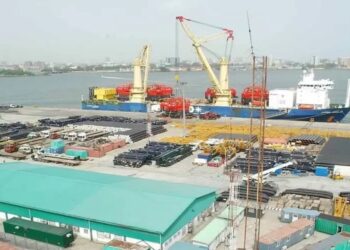Natural gas has become critical in driving industrial activities in both developed and developing countries. The global demand for natural gas has grown rapidly, particularly in the past couple of decades. This increasing global demand for natural gas has also spurred commercialization of the resource, particularly in the developing countries, where some of the largest gas reserves are located.
Unfortunately, to date, most of Nigeria’s natural gas production has been flared or re-injected to enhance greater crude oil recovery. With electric power still as epileptic as ever and global climate change caused by green house emissions from this flaring, it has become imperative to find ways to exploit and utilize Nigeria’s natural gas reserves for the improvement of the nation’s economy.
Enter President Bola Ahmed Tinubu with an unprecedentedly move, indicative of the country’s readiness to harness this untapped potential for economic growth. This bold shift saw the separation of the gas and petroleum ministries and heralded a venture into a prior uncharted territory in the oil and gas sector. For a man well known for having a keen eye for talent, the subsequent appointment of Obongemem Ekperikpe Ekpo as the new Minister of State for Gas Resources to midwife this vision is another laudable masterstroke.Being Africa’s largest gas producer and placing ninth in the world, this moment in history, which may well turnout to be a very defining one in Nigeria’s history, as it signals the journey to cementing a sustainable alternative to the extant fossil-fuel-driven economy. The man tasked with drawing up a roadmap to execute the President’s vision, Ekperikpe Ekpo, may not be the most popular given his modest demeanour, but he more than makes up for his natural predisposition to shy away from the spotlight, with an uncanny capacity for delivering gargantuan results, working behind the scenes.
A former National Legislator in the nation’s Green Chambers between 2007 and 2011, Ekpo is not new to the challenges of the Nigerian state. And knowing the urgency of the task at hand, he has already folded his sleeves and gotten down to the business of expanding energy accessibility while also improving the nation’s revenue stream.
The prospected upturn in fortunes will definitely not be a stroll in the park given the attendant challenges in this sector as well as the intangibles often associated with the teething process of a new innovation, such as the Ministry of Gas Resources. However, Ekpo has started on a sound footing.
He has carefully assessed the sector and has identified how good – and maybe even how bad – things are; but more importantly, how much better they can be. He disclosed that Nigeria’s natural gas reserves is currently put at over 200 Trillion Cubic Feet (TCF), but that the country’s gas sector still remains merely a potential key player in the emergent global natural gas market. This is because not much has been accomplished in terms of the effective exploitation and utilization of the over $800 billion worth of resource, as only a paltry 1.7% of this reserve is being accessed.
He has expressed his determination to maximize this huge resource via a “gas revolution” that will grow businesses, create employment opportunities and provide energy to help ameliorate hardship in Nigeria. To achieve these, Ekpo has identified key areas that will drive this revolution to include attracting foreign investments, given Nigeria’s position in the world market as a favourable investment hub. Other areas, which will bring the vision of gas-propelled economic and industrial growth to fruition, are circumventing the challenges of supply and the development of critical infrastructure.
With his appointment and his veracity, Nigeria will more likely exploit the opportunities to increase LNG exploration and thereby making more foreign exchange earnings.
Beyond investments, supply-related bottlenecks and infrastructural expansion are other factors like policy formulation and implementation, security enhancement and industry-based partnerships. In this regards Ekpo’s multifaceted experiences while representing the Akwa Ibom people of Abak/Etim Ekpo/lka Constituency at the National Assembly come to bear. His stewardship as the Deputy Chairman of the House Committee on Industry, while also serving in the Customs Service, National Security and Intelligence, Power, and Niger Delta Affairs Committees of the House, have equipped him with the relevant aptitude to craft regulatory frameworks.
It has also afforded him the social capital for collaboration with critical stakeholders in the areas of regulatory enforcement, security, and other strategic collaborations with which to spearhead the development and industrialization of gas resources.
Instructively too, his intellectual acuity given his academic background is another aspect of his rich armoury speaks volumes to his capacity to deliver on this unique assignment. With a Master’s degree holder in Environmental Pollution and Toxicology after obtaining a Bachelor’s degree in Biology (Ecology), Ekperikpe Ekpo is in very much at home in his new designation.
With his appointment as Minister of State for Gas, an evolutionary era beckons given his palpable preparedness to drive the vision of power and revenue generation, job-creation and a substantial GDP boost through a much-needed diversification of the economy.
Dr. Owolabi Ajibade is an engineer and gas expert





